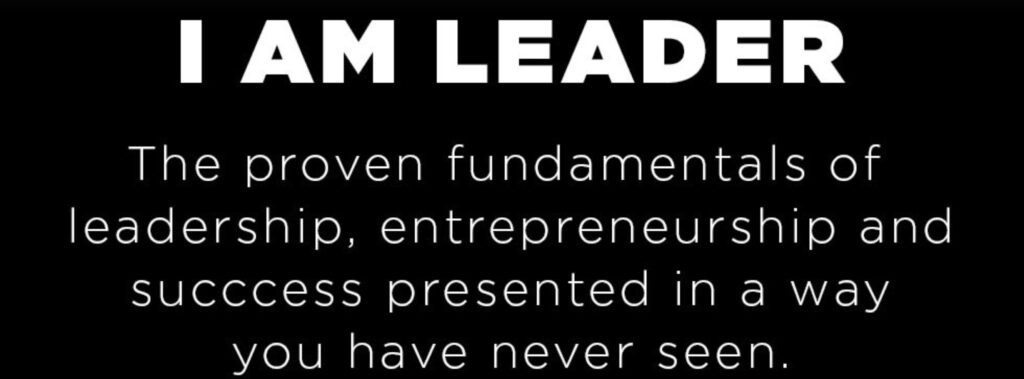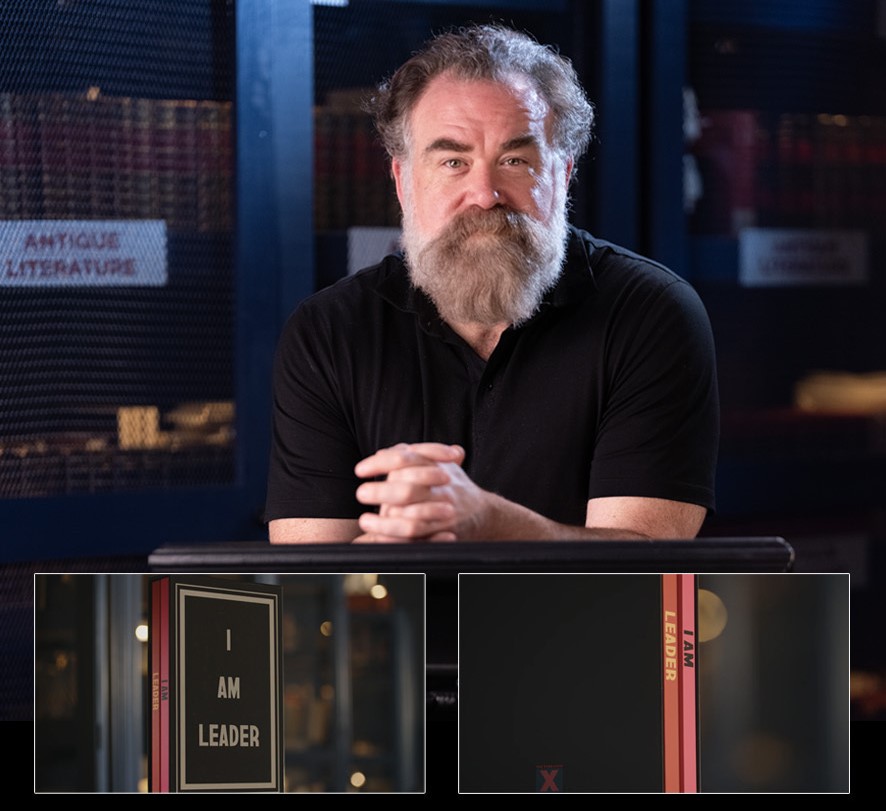Leaders in every industry are always looking for ways to be better. They want to increase productivity, boost sales, grow, scale, keep leveling up. One place where even the best leaders fall short is in developing a solid company culture that actually supports all of that growth and productivity. I recently sat down with best-selling author and Humor That Works CEO Drew Tarvin on Service Drive Revolution to talk about just that.
Drew spends his time teaching people how to get better results while having more fun. He’s the world’s first and foremost “humor engineer”, teaching people how to get better results while having more fun. He has worked with 35,000 people at 250 organizations, including Microsoft, the FBI, and the International Association of Canine Professionals. Combining his background as a project manager at Procter & Gamble with his experience as an international comedian, Drew reverse engineers the skill of humor in a way that is practical, actionable and gets results in the workplace.
Given his career and how successful he’s been, you might be surprised to learn that Drew identifies as an introvert, meaning that he feels recharged when he’s able to spend time away from people and likes to process internally rather than aloud. To him, being an introvert doesn’t say anything about whether or not he’s able to socialize. Drew looks at socializing, networking, humor, and the ability to engage in good conversation as skills that anyone can build rather than inherent capabilities. Because personality assessments are just that…assessments. They don’t dictate or limit our behavior or the skills we’re able to build. Personality assessments aren’t what define us. Our actions are what define us. And when you look at it that way, it’s really 100% up to you which skills you want to build and capitalize on, regardless of your “personality type”.
Social skills, like almost anything else, can be practiced and improved. Generally, introverts end up having fewer conversations when they reach adulthood because their nature is to seek solitude to recharge. This means that they often have less practice–or less “reps”, as Drew puts it–in engaging in dialogue. Drew realized this and decided that in order to build his skills in that area, he’d go into improv. Maybe it didn’t “come naturally” to him, but that didn’t matter. He’s a smart guy who was able to develop a strategy for delivering content that he knew would land with his audience.
He did the same thing to develop his networking skills. Networking wasn’t his strong suit, per se, so he developed a three-step process that would allow him to engage with others comfortably. It took some practice to get there, but now that he has the process down, he’s solid enough to train others on how to do it successfully too. If it had always come “naturally” to him, he wouldn’t have this process and structure in place and likely wouldn’t be nearly as successful as he is. He put in the work and he’s clear on the process, which are two of the most critical elements in getting results.
These same principles apply to the auto industry. Service advisors and salespeople who claim to be naturally good at selling and talking to customers end up being inconsistent in their delivery and outcomes, and inconsistency just isn’t scalable. Without a process in place and a toolbox for making the process happen, it’s almost impossible to evaluate what works and what doesn’t and adjust your strategy accordingly. And when you someone doesn’t have to create that process, they won’t. They’ll rely on their “innate ability” to sell or speak, which can only take you so far most of the time.
The fact of the matter is, even when someone makes their work look easy, the people who are at the top of their game have put in the work–the “unseen hours”–on the back end to get to that level of “ease”. From LeBron James to Jerry Seinfeld to Dave Chappelle, just to name a few, these people are putting in tons of work to make small tweaks to their game over time so it’s as good as it can be. It’s methodical, not “natural”. The service advisors and salespeople who are killing it are often the ones who had to put some effort into their game.
So to boil it down, our main points are:
If you’re an introvert, embrace it and recognize the strengths that come with it. Focus on your powers of observation, skillful planning, and ability to help others understand how to do things, rather than pretending you’re an extrovert or trying to change yourself.
Whether you’re an introvert or an extrovert, you have to do the work to get results. Introverts may be more naturally inclined to observe, plan, execute, evaluate and tweak, but extroverts need to do it too.
Another principle that guides Drew’s work is that humor and fun in the workplace are absolutely critical to a company’s success and it’s really centered around one key question:
Would people rather do something that is fun or not fun?
It seems simple, maybe even too simple, but the impact of this question is important. That small question drives a lot of behavior because more often than not the response is that people would rather do something that’s fun, right? So in order to sell more products or services and engage more customers, we need to make the process more fun for them.
Let’s take a client I worked with recently for example. It was a gym and like many gyms, they were doing the Groupon thing, inviting people to come in for personal training at a discount with the goal of getting them to sign on for a monthly membership once they try it out. If people just take the Groupon training session and never come back, they’re operating at a loss. So, what can a gym do to get people to come back? The answer comes from the same place as it does in the auto industry–curiosity. What can you do to make sure that your customer really wants to come back? More often than not, as Drew says, it’s fun that brings people back. You have to look beyond the tired and annoying tactics that have “worked” in the past and find ways to engage people that they will truly enjoy. This is another place where introverts thrive because most introverts are curious.
I asked Drew what happens in a company when they’re not having fun and how he can tell when a company has changed after he’s taught them how to change the game so they are having fun. What are the characteristics that demonstrate that the company has changed? Productivity increases, turnover decreases and retention increases, and profits increase. Isn’t this pretty much exactly what every company is trying to accomplish?
From a behavioral perspective, Drew says that he sees workplaces that have made an effort to infuse fun into their culture start to show up on time more because they’re looking forward to go to work. At work, they’re laughing more and they’re less stressed, and that impacts literally everything. Again, it seems simple, but the truth is, as Drew puts it:
“We live in a society in which more people believe in ghosts than actually like what they do for a living.”
So it might be a simple concept, but not many companies are actually looking at their culture and making an effort to develop a workplace that values fun and humor.
If you’re skeptical, there are numbers behind the theory that fun in the workplace leads to the positive outcomes outlined above, which Drew outlines in his book. According to the American Psychological Association, for example, the average cost of a stressed out employee is $7,500, in terms of healthcare costs, lost productivity, absenteeism, and presenteeism (when someone is physically at work but not fully present). This might not seem like a big deal until you learn that approximately 83% of Americans are stressed at work. That’s a whole lot of cash being lost because people aren’t happy in their jobs.
When your employees are disengaged, it doesn’t matter how well you train them or how efficiently you calibrate their workload. As Drew puts it, “The problem with time management is that, it doesn’t matter how much time you have, if you don’t have the energy to do anything with that time.” The impact on the world outside of your business is huge, too. Disengaged employees can easily become disengaged humans. If someone is spending their time slogging through work all day, do you think they’re going to head out of the office and have a positive impact elsewhere? No, probably not.
So, then, what does it take to be happy? Here’s what Drew has to say:
- Happiness doesn’t always result from or follow “success”, so stop waiting to suddenly become happy once you reach whatever your definition of success is. Humans have what Drew refers to as “hedonic adaptation” or the “hedonic treadmill” that causes us to perpetually seek happiness. When we accomplish something, we feel an increase in happiness momentarily and then return to our baseline. This short-term impact serves us well when it comes to negative feelings, but it also means the happy feelings are quick to pass. Happiness doesn’t come from accomplishing or buying or achieving. It’s a choice.
- We need to stop comparing ourselves. There’s not one set bar for happiness and when we compare ourselves to other people in other industries or who are doing things differently, we lose sight of our own happiness.
- Gratitude is everything. Try to be grateful and mad at the same time. Drew challenged me to do it, and it’s honestly impossible.
All of this said, I need to make one thing absolutely clear: Stress is not a bad thing in and of itself. In fact, on the show Drew tells a really poignant story about his time at Procter & Gamble and how he came to learn that stress expands your capacity up to a point. The problem is chronic stress–stress that isn’t ever relieved and only continues to build.
That’s where humor comes in.
Humor acts as a critical form of stress relief and basically allows people to counteract the negative effects of stress. Laughter literally lowers blood pressure and decreases muscle tension. It’s powerful. It works in the auto industry and I’d venture to guess most others. No matter your location, budget, or the services you provide, if you find ways to make your work more fun and allow for humor, you’ll see positive results.
Listen to Drew’s episode of Service Drive Revolution here. He has tons more information and guidance up his sleeve. Then, you can learn more about Humor that Works and Drew Tarvin on his website.










